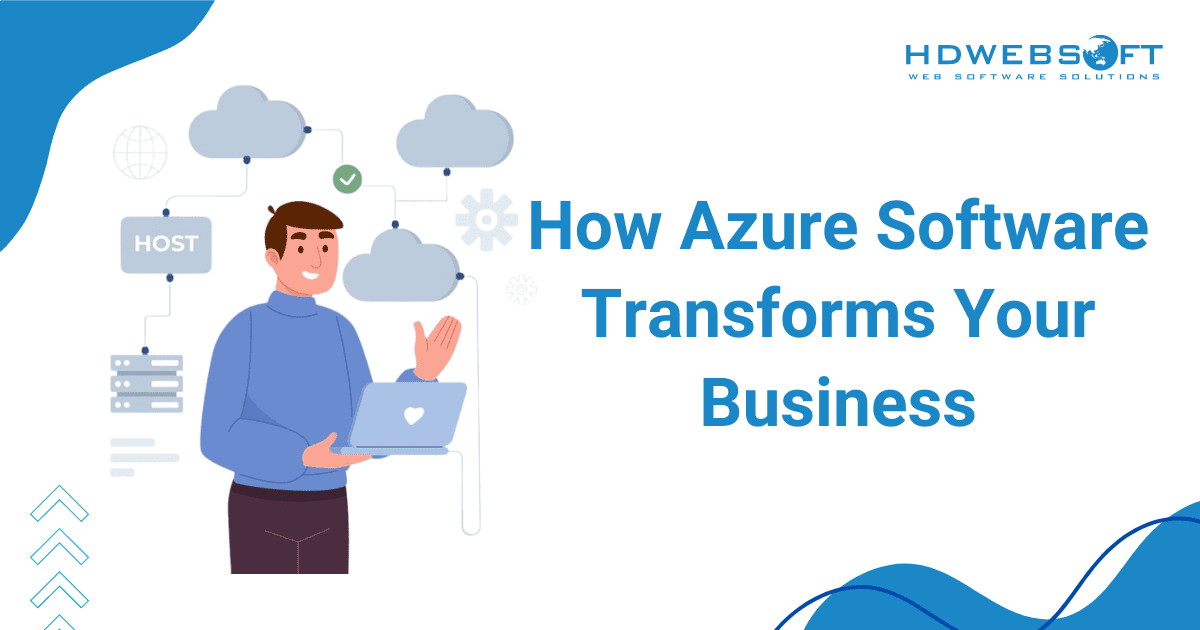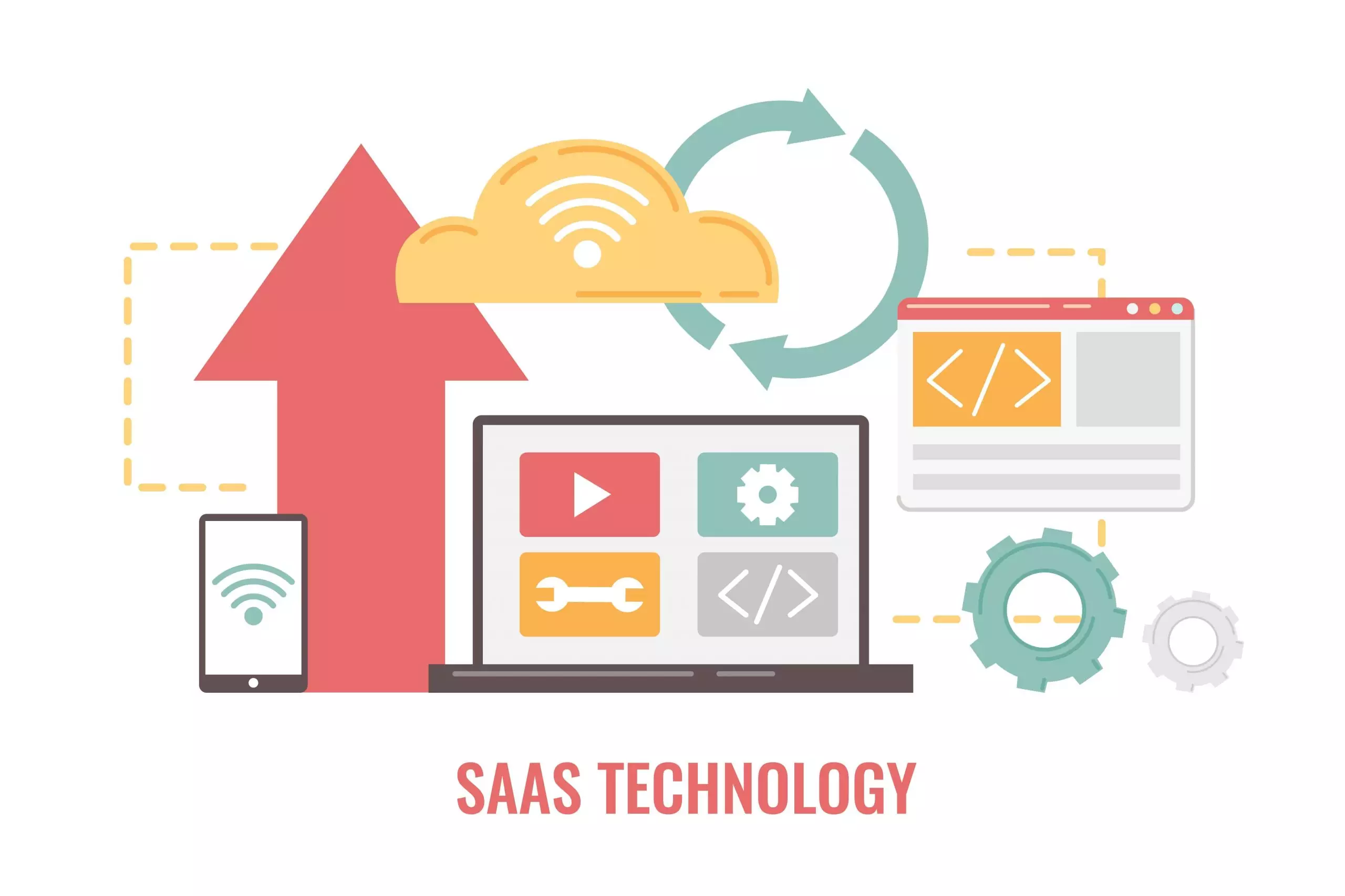
How Azure Software Transforms Your Business
Azure software has emerged as a cornerstone of modern business operations, powering innovation and driving efficiency. As a comprehensive cloud computing platform, Azure offers a vast array of services tailored to meet the diverse needs of organizations across industries. This blog delves into the intricacies of Azure software, exploring its functionalities, benefits, and potential applications.
What is Azure Software?
Azure software is a comprehensive cloud computing platform developed by Microsoft. It provides a wide range of cloud services, including computing, analytics, storage, and networking. With Azure, users can choose and configure these services to meet their specific needs. This flexibility allows users to build, deploy, and manage applications at scale through Microsoft-managed data centers.
At its core, Microsoft Azure is designed to support a variety of programming languages, frameworks, and operating systems. It offers developers and enterprises the flexibility to use the tools and technologies they are already familiar with. Moreover, it integrates seamlessly with existing on-premises environments, making it easier for organizations to migrate their workloads to the cloud.
In addition, the platform operates on a pay-as-you-go pricing model. This ensures that businesses only pay for the resources they use, which can be scaled up or down according to demand. As a result, this flexibility makes Azure a preferred choice for businesses aiming to enhance their digital transformation efforts. Combined with robust security measures and a global data center presence, Azure ensures reliable and secure cloud solutions.
How does Azure Software Work?

Azure software operates as a cloud computing platform that leverages a global network of Microsoft-managed data centers to deliver a wide array of services. These services enable businesses to build, deploy, and manage applications efficiently. Here’s a closer look at how Azure software works:
Infrastructure
Azure’s foundation is built on a global network of data centers strategically located around the world. This extensive network ensures high availability, redundancy, and low latency. Ultimately, it gives Azure the ability to deliver robust and reliable services globally.
Scalability and Flexibility
Azure’s pay-as-you-go pricing model ensures that businesses only pay for the resources they use. Additionally, these resources can be scaled up or down according to demand. This level of flexibility is critical for businesses that experience varying workloads and need to optimize costs.
Read more: A Guide to Scalable Solutions for Modern Business.
Security and Compliance
Azure integrates advanced security features, including multi-factor authentication, threat detection, and encryption, to safeguard data and applications. Additionally, Azure complies with numerous international and industry-specific standards, ensuring that businesses meet regulatory requirements.
Integrated Tools and Services
Azure software provides a suite of integrated tools and services to support development and operations. This includes:
- Azure DevOps: Tools for CI/CD pipelines, version control, and project management.
- Azure Monitor: Services for monitoring applications and infrastructure, offering insights to improve performance and security.
- AI and Machine Learning: Services like Azure Machine Learning and Cognitive Services to build intelligent applications.

Azure software can easily be integrated with many other tools and services to serve businesses’ needs and requirements.
Real-World Impact
Azure’s efficiency and reliability are reflected in its significant adoption across industries. As of 2023, Microsoft Azure holds a 23% market share in the global cloud infrastructure market. For that reason, it has become the second-largest cloud service provider. Needless to say, this widespread use underscores its effectiveness in supporting diverse business needs.
Types of Azure Services
Microsoft Azure offers a comprehensive range of cloud services, categorized into three main models: Infrastructure as a Service (IaaS), Platform as a Service (PaaS), and Software as a Service (SaaS). Each model provides different levels of control, flexibility, and management, catering to various business needs and technical requirements. Let’s take a look at them in detail:
Infrastructure as a Service (IaaS)
IaaS provides the fundamental building blocks for cloud IT. Specifically, it offers virtualized computing resources over the Internet, including virtual machines, storage, and networking capabilities. With Azure software’s IaaS, businesses can rent IT infrastructure on a pay-as-you-go basis.
- Virtual Machines (VMs): Azure VMs provide scalable computing resources. They are ideal for hosting applications, running development and testing environments, and extending data centers.
- Storage: Azure offers scalable storage solutions, including Blob Storage for unstructured data, Disk Storage for VMs, and File Storage for file sharing.
- Networking: Services like Azure Virtual Network allow businesses to create private networks within the Azure cloud. Desirably, this ensures secure connections and helps maintain robust network architectures.
IaaS is particularly beneficial for businesses looking to migrate workloads to the cloud. It allows them to scale their IT infrastructure quickly. Resultantly, this approach helps avoid the costs and complexities of managing physical servers and data centers.
Platform as a Service (PaaS)
PaaS provides a higher level of abstraction. It offers a platform that allows customers to develop, run, and manage applications without the complexity of building and maintaining the underlying infrastructure.
Additionally, Azure software includes development tools, database management, business analytics, and operating systems. This makes it a comprehensive solution for businesses looking to streamline their application development and deployment processes.
- App Services: Azure App Service enables developers to build and host web applications, RESTful APIs, and mobile backends.
- Azure Functions: This serverless computing service allows developers to run code on-demand without provisioning or managing servers, ideal for microservices architectures.
- Database Services: Managed database services like Azure SQL Database, Azure Cosmos DB, and Azure Database for PostgreSQL provide scalable and secure data storage solutions.
PaaS is ideal for development teams focused on application development and deployment. Additionally, it abstracts much of the underlying infrastructure management, which allows developers to concentrate on coding and innovation.
Software as a Service (SaaS)
SaaS delivers software applications over the internet on a subscription basis. With Azure software’s SaaS model, users can access and use software applications through a web browser without having to install and maintain the software themselves.
- Microsoft 365: A suite of productivity applications, including Word, Excel, PowerPoint, and Outlook, that are accessible via the cloud.
- Dynamics 365: A set of intelligent business applications for CRM and ERP that helps businesses streamline operations and enhance customer experiences.
- Power BI: A business analytics service that provides interactive visualizations and business intelligence capabilities.
SaaS is beneficial for businesses seeking to reduce the time and cost associated with software deployment and maintenance. Moreover, it ensures users always have access to the latest software versions and updates.

SaaS offers a cost-effective and time-saving Azure software solution for businesses.
Building an Azure SaaS application requires careful consideration of development resources. An in-house team offers deep control but demands significant investment in hiring, training, and infrastructure. Alternatively, leveraging Azure development services provides rapid access to specialized expertise, potentially accelerating time-to-market and reducing upfront costs.
Benefits of Azure Software in Business

By leveraging Azure, organizations can significantly enhance their operations, drive innovation, and achieve strategic goals.
Capital Efficiency
One of the primary advantages of Azure software is its capital efficiency. Traditional IT infrastructure requires significant upfront investment in hardware and software, along with ongoing maintenance costs. However, Azure eliminates these expenses by providing a pay-as-you-go model. This model allows businesses to scale resources up or down based on demand, ensuring they only pay for what they use.
Consequently, this flexibility reduces capital expenditure and shifts costs to operational expenditure, making financial planning more predictable and manageable.
Cost-Effectiveness
Azure’s cost-effectiveness is another significant benefit for businesses. By leveraging Azure’s cloud infrastructure, companies can avoid the substantial costs associated with maintaining physical servers and data centers. A recent study revealed that businesses can achieve significant cost savings by migrating from on-premises deployments to Microsoft SQL Server on Azure Virtual Machines. This transition often results in up to a 47% reduction in operational expenses.
Additionally, Azure’s pricing models and various discount options, such as reserved instances, further enhance its cost-effectiveness, enabling businesses to optimize their IT budgets efficiently.
Easy Backup and Recovery Options
Azure software provides robust backup and recovery options that are essential for business continuity. Specifically, Azure Backup and Azure Site Recovery services ensure that data is protected and can be quickly restored in the event of a disaster. These services automate the backup process and offer various recovery points, minimizing data loss and downtime.
Furthermore, by storing backups in geographically distributed data centers, Azure ensures data durability and availability, providing businesses with peace of mind.
Easy to Implement
Another compelling reason businesses adopt Azure is the ease of implementation. In particular, Azure offers a wide range of pre-configured templates and services that simplify the deployment of applications and infrastructure.
Additionally, its integration with popular development tools and platforms, such as Visual Studio and GitHub, streamlines the development and deployment processes. Furthermore, Azure’s extensive documentation and support resources help businesses get started quickly and effectively.
Work from Anywhere
Azure software supports the modern workforce’s need for flexibility by enabling employees to work from anywhere. Moreover, with Azure Virtual Desktop and other remote access solutions, employees can securely access applications and data from any location using any device. This capability is particularly valuable in today’s remote work environment, as it ensures productivity and collaboration regardless of geographical constraints.

Azure software fosters a remote working environment, a valuable benefit considering today’s world.
Security
Security is a top priority for businesses, and Azure excels in this area. Azure provides advanced security features, including multi-factor authentication, threat detection, and encryption, to safeguard sensitive data and applications.
Furthermore, its compliance with international standards and regulations, such as GDPR and ISO 27001, ensures that businesses meet their legal and regulatory obligations. Azure Security Center offers continuous monitoring and threat protection, helping businesses maintain a strong security posture.
Increased Collaboration
Azure software enhances collaboration within organizations by providing tools and platforms that facilitate seamless communication and teamwork. Services like Microsoft Teams, integrated with Azure, enable real-time collaboration through chat, video conferencing, and file sharing.
Additionally, Azure DevOps supports collaborative software development by offering features such as version control, agile planning, and CI/CD pipelines. These tools help teams work more efficiently and effectively, driving innovation and improving project outcomes.
Conclusion
Azure software stands out as a powerful and versatile cloud computing platform that supports businesses in achieving their goals through scalable, secure, and cost-effective solutions. Whether you’re a small startup or a large enterprise, Azure offers the tools and services necessary to drive innovation and growth. HDWEBSOFT specializes in harnessing the full potential of Azure, providing tailored solutions to address your unique business challenges. Our team of experts can guide you through the entire Azure journey, from cloud migration and application development to data management and optimization. Partner with us to unlock the transformative power of Azure and achieve your business objectives.









